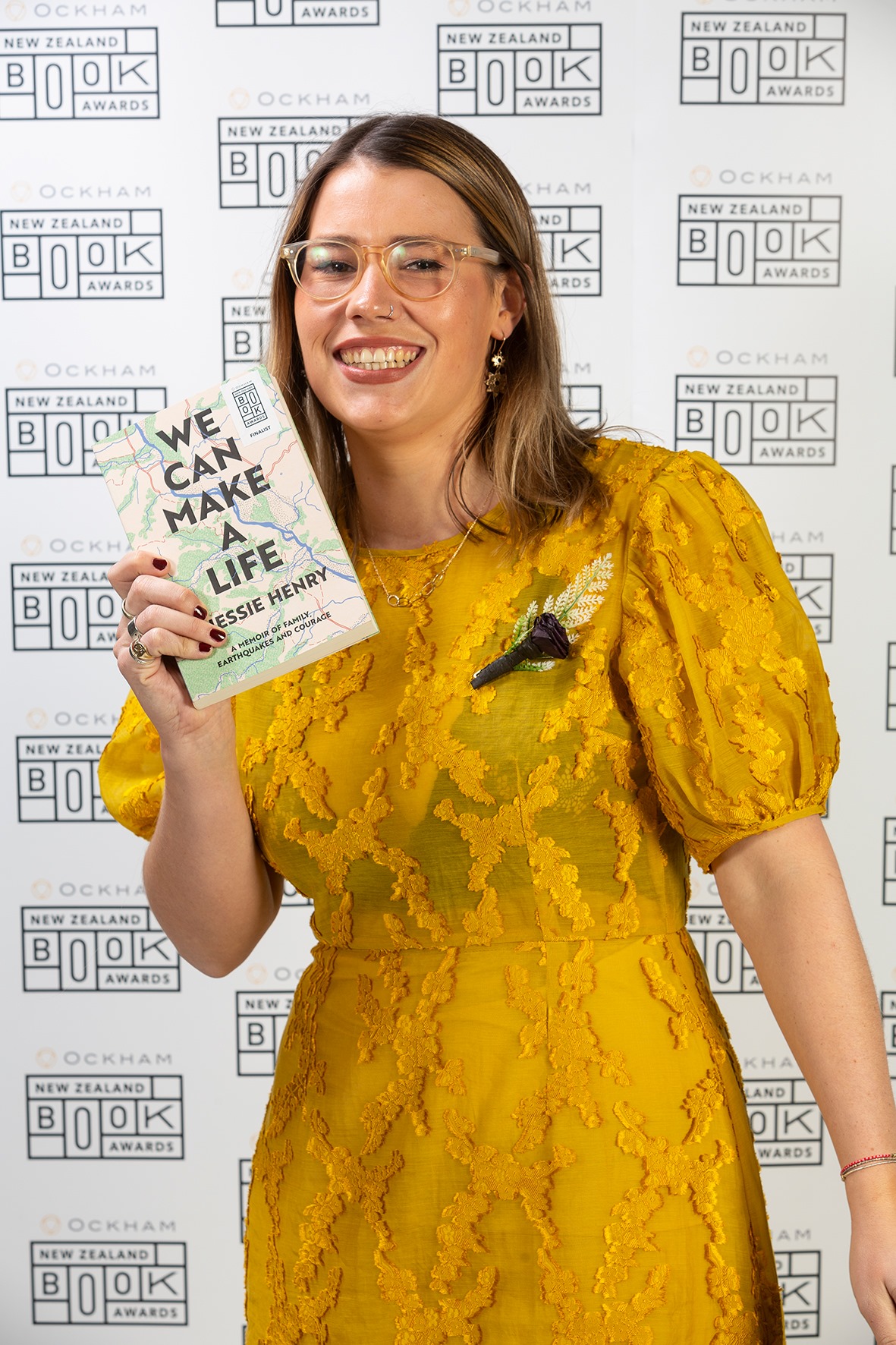A celestial array of talents – new and established – battled it out at the 2019 Ockhams, New Zealand's premier literary competition. In the fiercely contested fiction category containing some of the finest writers Aotearoa has seen, a great dame would get the gong.
16 May 2019
Ockham New Zealand Book Awards - 2019 Winners Announced
Dame Fiona Kidman has won the $53,000 Acorn Foundation Fiction Prize at the 2019 Ockham New Zealand Book Awards for her novel, This Mortal Boy, a work recreating the events leading to the real life hanging of 'jukebox killer' Paddy Black at Mount Eden prison in 1955. Judges described it as "moving, memorable, authentic and urgently relevant to our times".
The book published by Penguin Random House received the honour ahead of a strong line-up of finalists comprising Lloyd Jones (The Cage), Kate Duignan (The New Ships) and Vincent O’Sullivan (All This by Chance) at the Auckland Writers Festival marquee event held in the Aotea Centre this evening.
"In This Mortal Boy, Fiona Kidman has written an intensely human and empathetic story," the judges continued. "With seeming effortlessness, she pulls the reader into mid-century New Zealand — the restlessness of a new urban youth culture, the moral panic that led to the Mazengarb report, the damning assumptions of the legal profession and the unchallenged omissions that eased the pathway to a young man’s death," said this year’s fiction category judges.
"Moving, memorable, authentic and urgently relevant to our times... in This Mortal Boy, Fiona Kidman has written an intensely human and empathetic story."
Hudson & Halls: Truth finer than fiction
New York Times' best-selling author and academic Joanne Drayton won the Royal Society Te Apārangi Award for General Non-Fiction.
Joanne Drayton picked up the top award for Hudson & Halls: The Food of Love published by Otago University Press. The category judges said Hudson & Halls is not simply the story of celebrity chefs: "It is a generous, multi-layered, and touching account of companionship and enduring love.
"Set against the backdrop of the double act many of us will remember, Hudson & Halls reveals the humour and drama of this couple’s onscreen chemistry, and is a deeply moving and often surprising account of their private life. Set within the context of significant social and political moments over four decades and three countries, Joanne Drayton’s fresh approach to storytelling makes this a must-read."
Helen Heath takes out Poetry prize
Wellington poet Helen Health won the Mary and Peter Biggs Award for Poetry for her collection Are Friends Electric? published by Victoria University Press.
"By turns thoughtful and moving, Are Friends Electric? asks how the material world might mediate — or replace — human relationships.
"Helen Heath’s collection impressed the judging panel with its broad thematic reach, its willingness to tackle complex issues, and its poetic risk-taking," said the judges.
Mallon and Galliot win Illustrated Non-Fiction
Senior curator Sean Mallon and French ethnologist Sébastien Galliot took the Illustrated Non-Fiction category for their work Tatau: A History of Sāmoan Tattooing published by Te Papa Press.
The book which traces the art form from 3,000 years ago to the present day is described by judges as a visual feast.
"Quality design is met with innovative writing that both records and opens up new territory, creating a book that will expand and enrich the knowledge of readers throughout Aotearoa, the Moana Pacific and beyond," said the judiciary. "Tatau: A History of Sāmoan Tattooing celebrates the tactile pleasure of a book in the hand, and should be acknowledged as a milestone in contemporary publishing."
Landmark work on tikanga Māori
Te Mūrau o te Tuhi, a discretionary Māori Language Award, was presented this year for the landmark work He Kupu Tuku Iho: Ko te Reo Māori te Tatau ki te Ao by pioneering language and tikanga academics Sir Tīmoti Kāretu and the late Dr Wharehuia Milroy published by Auckland University Press.
Te Reo Māori judge Dr Ruakere Hond acknowledged the very recent passing of Dr Milroy in announcing the award.
"He tai mutunga kore te ranga whai reo e āki kau ana ki te aroaro o te tokorua kātuarehe, ngā ruānuku o te reo o nehe, ki nāianei rangi. He whāiti taua urunga, engari i konei ka wherawhera mai. He maioha tēnei nā Tīmoti Kāretu rāua ko Te Wharehuia Milroy, kia hou mai te tāura ki waenga pū i ā rāua kōrerorero, he kōrero paki, he hokinga mahara o te ohinga, ā, pakeke noa. He puanga rautangi ki te hauangi. Kapohia e te tini. He tatau e puare ana i tō rāua ao.
"Staunch advocates of our spoken reo have relentlessly sought to sit down with these two most influential exponents of reo Māori, from the past and for today. Few have had the opportunity; this book now opens that door. Tīmoti Kāretu and the late Wharehuia Milroy invite the reader into their conversations, their yarns and musings from decades of cultural experience. This book’s value is undeniable. Its language, accessible. This is a doorway to their world,” said Dr Hond.
Four MitoQ Best First Book Awards were also presented at the Ockham New Zealand Book Awards.
📚 The Hubert Church Prize for a best first book of Fiction went to Kirsten Warner for The Sound of Breaking Glass (Mākaro Press).
📚 The E.H. McCormick Prize for a best first work of General Non-Fiction was presented to Chessie Henry for We Can Make a Life (Victoria University Press).
📚 The Jessie Mackay Prize for a best first book of Poetry was awarded to Tayi Tibble for Poūkahangatus (Victoria University Press).
📚 The Judith Binney Prize for a best first work of Illustrated Non-Fiction went to John Reid for Whatever It Takes: Pacific Films and John O’Shea 1948-2000 (Victoria University Press).
Topics








































